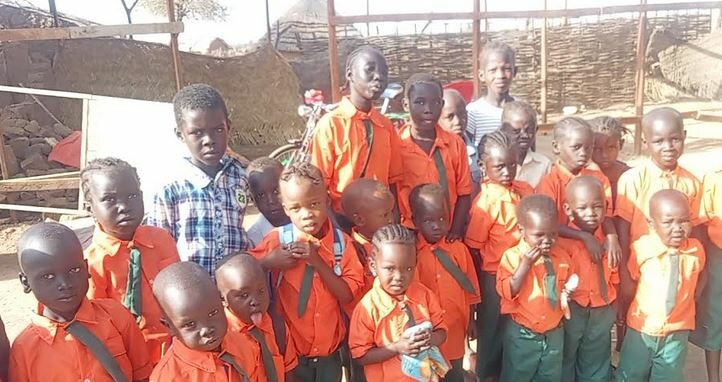Several families across Northern Bahr el Ghazal State have attributed poor enrolment and performance of their children in schools to poor living conditions, economic crises, and delays in the payment of civil servants’ salaries.
The Government of Northern Bahr el Ghazal State through the Ministry of General Education and Instruction officially announced that the new academic year will commence this week starting 19 February.
However, many parents Radio Tamazuj interviewed in various locations in the state on Monday morning and they said they failed to take their children to school due to economic and other hardships.
Aguer Akook, a government employee who hails from Aweil East County, said hard living conditions, not receiving his salary arrears and lack of food have made it impossible for him to take his children to school this term.
“I am not able to take my children to school at the moment because I did not receive my salary from the government,” he lamented. “Even if I receive my salary arrears, I will have to buy food as the priority and I do not think anything will remain for school fees.”
Amel Noon, a South Sudanese returnee from Nyala, South Darfur State, in Sudan, said she enrolled her children in one of the schools in Aweil Town to get an education although her family does not have enough money. She said she hopes to find work after which she will pay the school fees.
“I have brought my children here for registration and I want them to be educated. Although I do not have much money, I will pay the school fees if I get some little money,” she explained. “We are facing difficult conditions because I escaped from Nyala in Sudan about four months ago.”
According to Marko Guot, a resident of Aroyo Town in Aweil Center County, the government’s policy of free and compulsory education at public primary and secondary schools is not working because teachers were not working dedicatedly due to poor and delayed pay.
“The government says education at the government-funded primary and secondary schools is free but teachers are not receiving their salaries on time and this makes them unable to provide quality education,” he said.
Guot urged parents to take their children to private education institutions for better learning. He also tasked the government to pay public school teachers on time so that they provide essential education services to children from poor families.
“I am telling everybody to take their children to private schools to gain quality education and my recommendation to the government is to release the teachers’ wages on a timely basis to ensure that children of poor families are also educated,” he added.
Meanwhile, Peter Dau from Aweil South County, said government workers do not receive their salaries every month and cannot afford to educate their children. Another challenge, he says, is that non-governmental organizations (NGOs) that were providing food directly to the public schools are now contracting local traders to supply schools and that the merchants take very long to deliver food to schools. He said the lack of food at school discourages learners from attending lessons.
“This situation is not supportive because the salaries of government employees are not paid on time at the end of every month and they have not been paid for months,” Dau explains. “Another problem is that some organizations who were providing food to primary and some secondary schools directly are now contracting local merchants who take long to import the food items for the learners despite the high need.”




